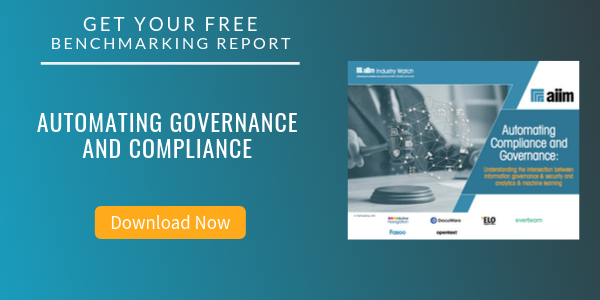
8 Reasons Why Privacy Will Be an Increasingly Important Compliance Concern
1. Horizontal information access means that personal and organizational profiling is here.
For many years, the best protection of your personal data was the inability of IT shops to deliver value -- because the tools were not there to dig through all the data and deliver useful information, the risk to privacy was mitigated! Today, not only IT professionals are capable of interconnecting internal and external data sources, but just about anyone with access to a search engine. This allows ubiquitous access to information, exceeding the wildest dreams of the creators of the original data. This means that private and government bodies can build comprehensive personal profiles of people and organizations.
2. Googlization challenges privacy.
Yes, everything stored on the Internet remains there forever. Old and outdated information -- whether true or not -- can have a long and sustaining impact on you. The more efficient and effective data retrieval becomes, the more transparent your life becomes to almost everyone using the Internet. The fundamentals of privacy state that you are the master of your data and have the full right to do with it what you want (i.e., “right to self-determination”). How will this fundamental privacy assumption be upheld as information access continues to grow and become more and more effective?
3. Privacy is not only about individuals.
Privacy is not only about your personal feelings but also about how private organizations and governments treat personal and organizational information. Poor control over access to information can have fundamental implications not only on individual privacy but also on how corporate assets are valued in the marketplace.
4. User awareness grows - but will it help?
Our kids are already mature Web 2.0 users. Educated kids don’t (usually!) post information that might be a potential threat to their privacy. How does this apply to corporate information? In general, the authenticity of information and the trustworthiness of the sources of that information will be of increased importance. How organizations verify this trustworthiness will be an increasing challenge.
5. Sophisticated information security gains importance: watermarking and monitoring.
There is no privacy without information security. One of the fundamental misconceptions of many of the approaches to privacy legislation and regulation is the idea that it will be possible to prevent data from being created and stored. We all know that this is an illusion. But we need to be able to find out whether data about us has been stored. The keyword is monitoring. As tools to search and retrieve data become more and more powerful, data compromising your privacy can be found much easier. So watermarking your personal data in some way will become key. In general, most of the actual security management systems lack a proper balance of prevention, detection, and correction. Most systems rely on prevention, a strategy that has not worked and continues to cost us millions.
6. International co-operation against privacy crime is a MUST.
Monitoring and tracking down the bad guys is nice, but we also need an international code of criminal procedures, which allows punishing violators cross-border. As long as servers with illegal data can be placed anywhere in the world, law enforcement must be strengthened on an international level. Law enforcement must be allowed to drive active attacks against machines distributing illegal data. This is not only about privacy but cybercrime in general (identity theft is also a violation of privacy).
7. It is about companies, too!
During the last two years, awareness has risen that with new players like Google or Facebook, data privacy is an important concept to protect individuals not only from excessive data usage by the government but also by private organizations.
8. Anti-trust regulation will impact privacy initiatives.
There is a relationship between the increasing number of Google anti-trust challenges -- especially in Europe -- and how privacy regulations and legislation will develop. As Google's ability to gather information accelerates, the company would be wise to apply it's "do no evil" mindset to get ahead of privacy legislation, rather than wait for mandates.
About John Mancini
John Mancini is the President of Content Results, LLC and the Past President of AIIM. He is a well-known author, speaker, and advisor on information management, digital transformation and intelligent automation. John is a frequent keynote speaker and author of more than 30 eBooks on a variety of topics. He can be found on Twitter, LinkedIn and Facebook as jmancini77. Recent keynote topics include: The Stairway to Digital Transformation Navigating Disruptive Waters — 4 Things You Need to Know to Build Your Digital Transformation Strategy Getting Ahead of the Digital Transformation Curve Viewing Information Management Through a New Lens Digital Disruption: 6 Strategies to Avoid Being “Blockbustered” Specialties: Keynote speaker and writer on AI, RPA, intelligent Information Management, Intelligent Automation and Digital Transformation. Consensus-building with Boards to create strategic focus, action, and accountability. Extensive public speaking and public relations work Conversant and experienced in major technology issues and trends. Expert on inbound and content marketing, particularly in an association environment and on the Hubspot platform. John is a Phi Beta Kappa graduate of the College of William and Mary, and holds an M.A. in Public Policy from the Woodrow Wilson School at Princeton University.



